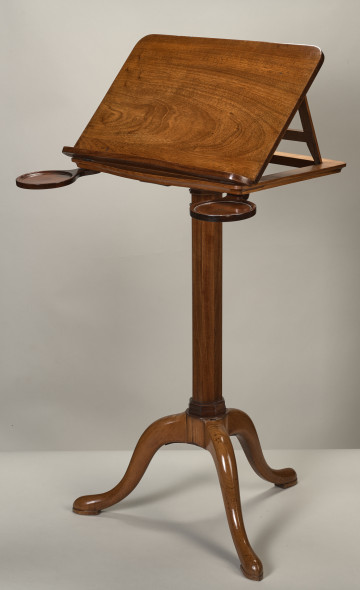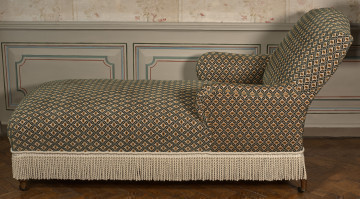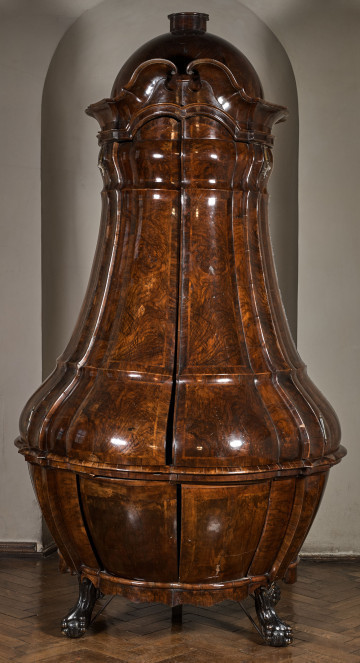
Wooden desktop
18th-19th century
Castle Museum in Łańcut
Part of the collection: Furniture and interior furnishings
chair with Szreniawa coat of arms The use of heraldic elements in furniture making was not unique. Among the examples noteworthy are seating devices – armchairs and chairs, decorated with shields with emblems and enriched with other heraldic elements placed on the backrest or its finial. Famous examples from the Renaissance period include the crest-decorated chairs of the Florentine Strozzi family. They were a variation of the sgabello – a chair with a carved and planked back and seat supports. From the Italian sgabello evolved the zydel (zedel) known throughout Europe – a wooden chair with a trapezoidal seat supported by outward-slanting legs or supports and a planked, profiled backrest. In the second half of the 19th century, with the arrival of the fashion for historical styling, heraldic armchairs and chairs were eagerly revisited in furniture making. They more often fulfilled a decorative and representative function than a strictly utilitarian one, and were usually placed at the entrance, in a main hall or a ceremonial anteroom. The chair presented here is an example of heraldic furniture. It is probably a 19th century compilation based on the form of a traditional zydel with legs typical of the late Baroque period. The octagonal backrest shield depicts a bas-relief with the Szreniawa coat of arms (variant without the cross, formerly Drużyna) surmounted by a mitre belonging only to the coats of arms of ducal families. The title was bestowed on Stanisław Lubomirski (1583–1649), the first of the family to own Łańcut, by Emperor Ferdinand III in 1647. The presented chair comes from the collection of the Przeworsk palace, which belonged to the Lubomirski family until the land reform of 1944. Prepared by Teresa Bagińska-Żurawska https://orcid.org/0000-0002-9243-3967
Author / creator
Dimensions
height: 99 cm, width: 51 cm
Object type
Furniture and interior fittings
Technique
carpentry
Material
wood
Creation time / dating
Creation / finding place
Owner
Castle Museum in Łańcut
Identification number
Location / status

18th-19th century
Castle Museum in Łańcut

20th century
Castle Museum in Łańcut

18th century
Castle Museum in Łańcut
DISCOVER this TOPIC
Castle Museum in Łańcut
DISCOVER this PATH
Educational path